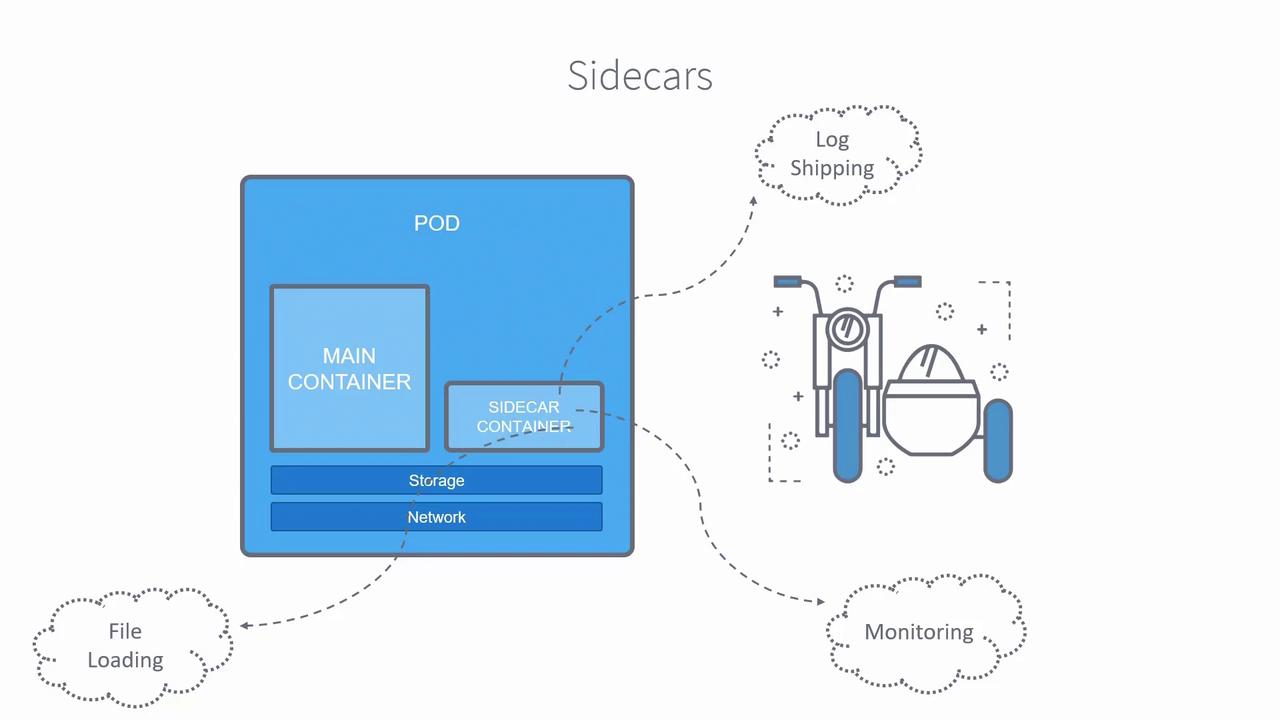Kubernetes and Cloud Native Associate - KCNA
Container Orchestration Service Mesh
Sidecars
In this article, we explore the role of sidecars in service meshes with a special emphasis on the Istio Service Mesh. Before diving into Istio, it's essential to understand the concept of sidecars and their significance in Kubernetes deployments.
Prerequisite Information
Before proceeding, ensure you are familiar with the basics of Kubernetes, including Pods, containers, and networking.
Sidecars are additional containers that run alongside the main application container within a Kubernetes Pod. They are analogous to the small passenger cabins attached to motorcycles—complementary, yet distinct in purpose. In Kubernetes, while the primary container executes the core business logic of the application, sidecar containers handle auxiliary tasks such as log shipping, monitoring, file loading, or proxying. Importantly, sidecars share the same volumes and network namespace as the main container, ensuring seamless communication and resource sharing.

This approach of separating non-business functions from the primary application logic promotes improved modularity, maintainability, and scalability of your application architecture.
Below is a simple example of a Kubernetes Pod definition that demonstrates the use of a sidecar container. In this configuration, the main container runs an NGINX image, while an additional container based on the Fluentd image acts as the sidecar, responsible for shipping logs from the main application to a centralized logging system.
containers:
- name: nginx-container
image: nginx
volumeMounts:
- name: shared-data
mountPath: /usr/share/nginx/html
- name: sidecar-container
image: fluent/fluentd
volumeMounts:
- name: shared-data
mountPath: /pod-data
Next, we will delve into Envoy and examine its role within service meshes, highlighting how it interacts with sidecar patterns to enhance traffic management and security in distributed systems.
Watch Video
Watch video content